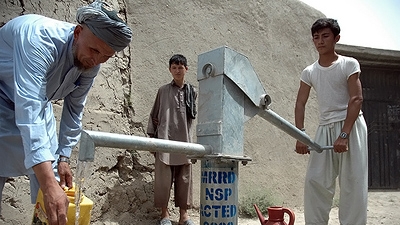To mark World Water Day, March 22, World Bank President Robert B. Zoellick and United States Secretary of State Hillary Clinton signed an agreement making it easier for the U.S. Government and World Bank to work together to address global water challenges.
While the Bank and the U.S. have partnered before on water issues, this provides the World Bank access to experts in 17 U.S. government agencies and departments to address issues such as lack of safe drinking water and sanitation, diminishing aquifers, drought, flooding, and climate change impacts.
“Look at almost any poverty issue: you will find water,” said World Bank President Robert B. Zoellick. “The World Bank Group is helping countries balance competing water demands for agriculture, energy, people and the environment. The enhanced partnership we are launching with the United States will give a real boost to this work."
Secretary Clinton said the agreement was part of an initiative in which the US government will take a "whole-of-government approach" to the water issue, and also "identify strategic opportunities for working with private firms, and bring their technical skills and capital to bear in addressing the challenges facing the water sector."
The signing was preceded by presentations by Steve Hilton of the Conrad Hilton Foundation, who announced a $50-million pledge for water projects, and Jeff Seabright, Vice President of Coca Cola, who announced a $6 million for water and sanitation projects.
Also participating the Bank event were other CSO leaders in the US, and at a video-linked UN Water conference in Cape Town, South Africa, where they were joined by His Royal Highness Willem-Alexander, Prince of Orange, South African Environment and Water Minister Edna Molewa, and Joan Clos, Executive Director of UN-Habitat.

